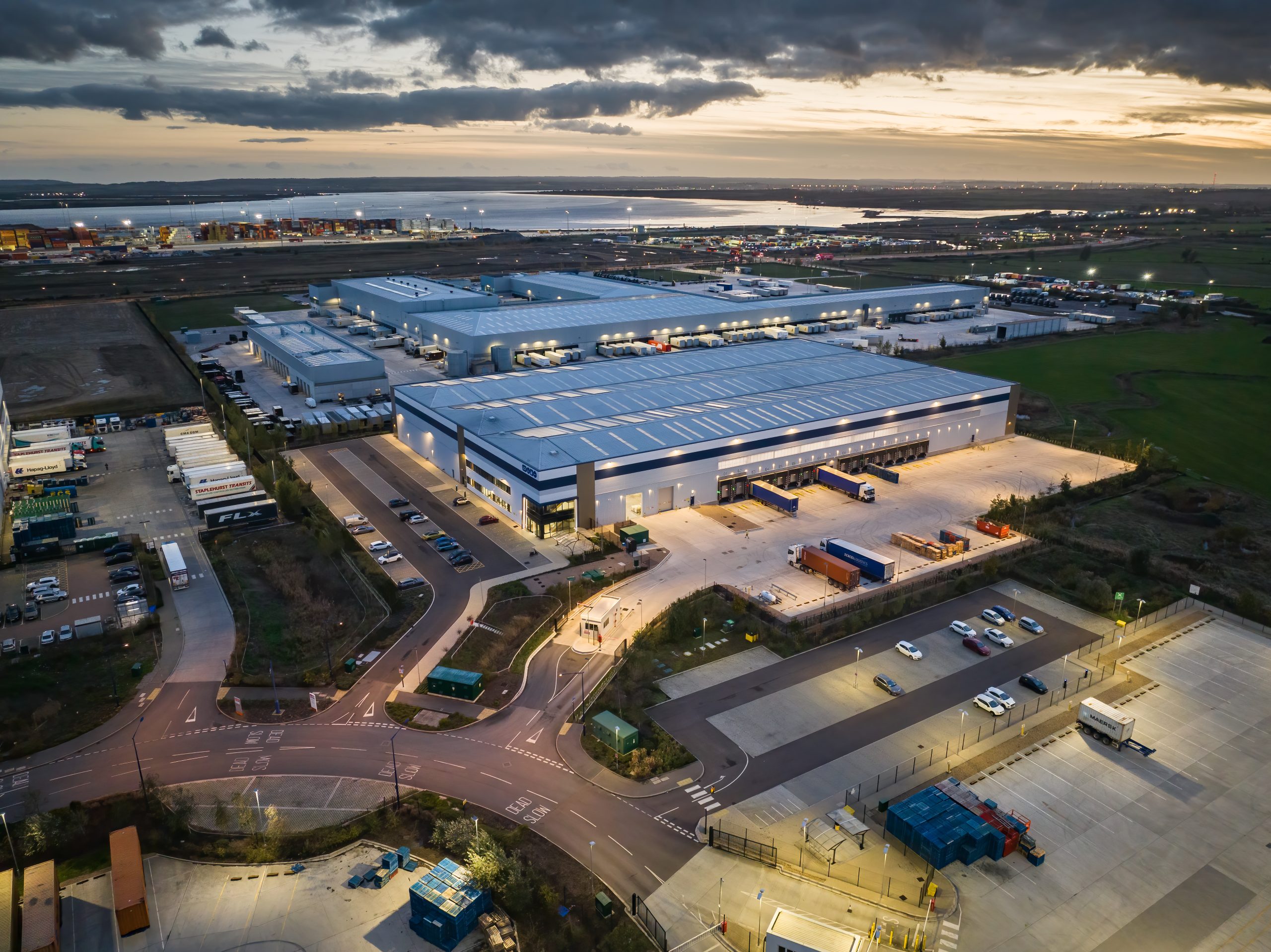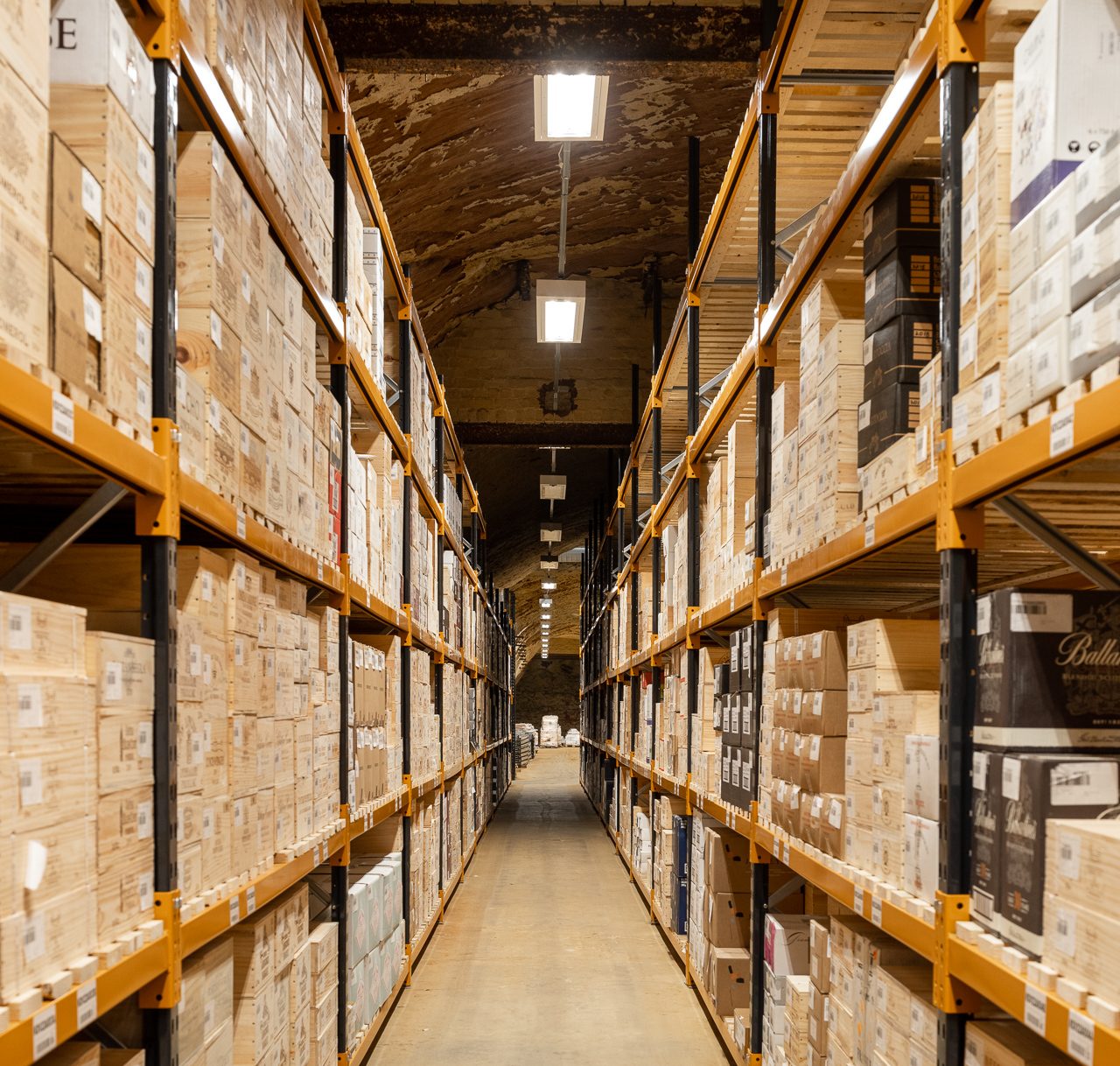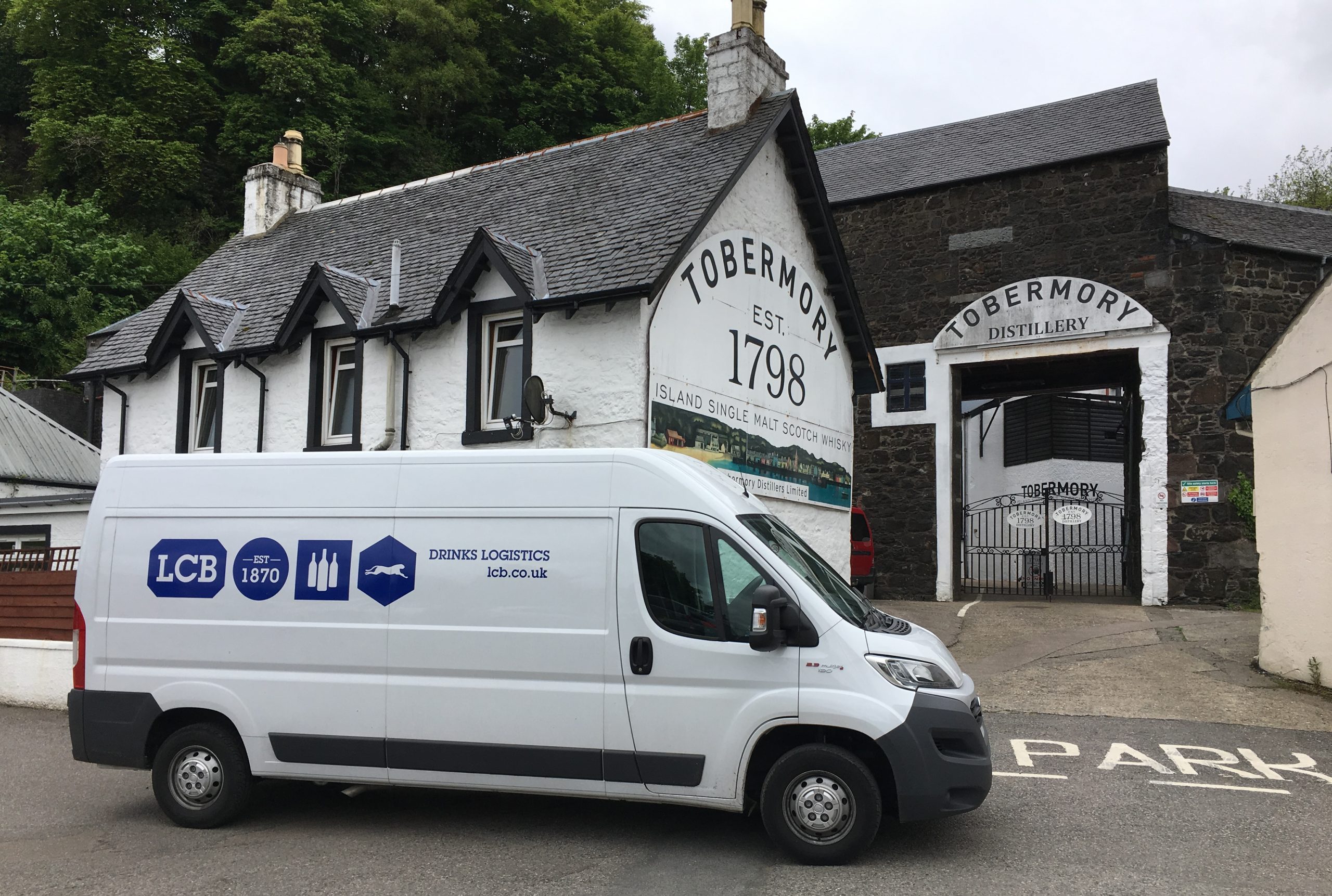What does the bonded warehouse look like in the 21st Century?
With 150 years of experience behind it, db discovers how London City Bond (LCB) mixes history and innovation to meet market demands.

What are the benefits of using a bonded warehouse? It is a question that is often asked and the answer really depends on where your business lies within the drinks industry.
When dealing with large volumes, it can offer a means of optimising your cash flow. For smaller businesses, the comfort of security and a method of dealing with officialdom may be key. For private collectors, the ultimate conditions for safe and reliable storage can be the gateway to the world of fine wine.
Whatever your requirements may be, if you operate in the UK market (or increasingly, elsewhere in the world), LCB is likely to feature in your considerations. It is the leading privately owned British bonded warehousing company, building on a rich history of trading back to 1870.
During the past 35 years, the company has expanded substantially – both in terms of its size and the range of services which it offers. Even its many admirers may not realise the range of services LCB now provides.
The core offering
Of course, much of LCB’s work is grounded in history, due to its forebear company, British & Foreign Wharf. This first operated in 1870 and served London for more than 100 years, before LCB was established in its current format in 1988.
The range of services offered to both trade and private customers has changed almost beyond recognition, but the core activity of offering bonded storage space has remained constant. The principle of storing alcoholic products without the need for the immediate payment of duty, which underpins the business, has stayed the same.
That principle offers a whole range of benefits. Most products are not needed immediately, and therefore it can delay a substantial cost and so allows a company to better manage its cash flow. The warehouses offer safe and secure storage with the necessary security measures being in place, the likes of which would be unattainable for many companies on an individual basis, and hence offer much needed reassurance that their stock is in safe hands.

With 2.4 million ft2 of warehouses, spread across 16 locations, LCB can provide a number of more customer specific options. For instance, as the fine wine market grew, LCB recognised the need for high-quality, long-term storage for such wines.
Hence its dedicated sites for fine wine feature a temperature and humidity-controlled environment which is free from UV radiation, daylight intrusion, and has greatly reduced vibrations from the usual truck operations. This gives them the ideal conditions to store the world’s most prized bottles.
At the other end of the scale, LCB operates the only drinks tax warehouse in two freeports –- one within Tilbury Freeport and another at the rapidly expanding London Gateway. Being within the port allows shipments to arrive almost directly into the warehouse, cutting down on the environmental and financial costs of haulage, as well as getting the product into a secure location rapidly. LCB operates its own port tractors – a unique and much-valued service to customers using these warehouses.
Expanding to meet demand
Whilst the principle behind LCB may appear to be simple and has stood the test of time, it does not mean the offering is static. During the past 35 years, LCB has expanded both its remit and premises to better serve both its trade and private customers throughout the UK and around the world.
A key focus has been the ongoing development of its logistics offering. Integral to the provision of storage, LCB has steadily built up a delivery service that covers the length and breadth of the UK. With a fleet of over 300 vehicles, making up to 23,000 deliveries a week, it is now regarded as an essential part of the business – and one that makes LCB stand out from its competitors.
The dedicated logistics division means that LCB can manage its operations in-house. This avoids reliance upon third-party carriers or pallet networks over which LCB has little or no control.
Having invested heavily in technology, LCB now offers its customers online visibility of their orders along with almost instant proof of delivery information. Advance warning of a delivery can be sent via text messages, if required, and this has proved to be greatly appreciated by private customers in particular. As new technology evolves, so too does LCB intend to evolve its delivery options.
It is now widely expected that companies offer reliable nominated day deliveries – including, when requested, specific time slots , for all postcode areas. Hence LCB operates to a specific delivery tariff for each of its warehouses. There is also flexibility in delivery size, covering everything from a single bottle to a full articulated vehicle load.
Partner Content

LCB has also considerably expanded its warehousing capacity. In just the last two years, it has significantly developed its offering and facilities It opened three completely new sites in 2022: London Gateway, Fradley Park (Lichfield) and an underground fine wine facility at Drakelow Tunnels near Kidderminster. Additionally, LCB last year expanded its Glasgow and Tilbury sites.
With an already impressive portfolio of clients – including major brand owners, wine merchants, wineries throughout the world, individual traders and 6,500 private collectors, – LCB is making considerable investments to meet the growing demands of the UK drinks trade and beyond.
Looking to the future
Beyond the expansion necessary to meet the industry’s current needs, LCB is also making sure no development in the industry outpaces it. As both producers and consumers change their habits, it is adapting its offering to meet their needs.
One of the hottest topics in the trade is the rise of alcohol-free and low alcohol products. These are often positioned as an appealing alternative to their alcoholic counterparts and much of the sector’s marketing makes a case for their interchangeability. There is, however, an important difference between the two: when there is no or low alcohol in the product, there is little or no duty to pay.
The bonded warehouse is therefore not strictly necessary, but LCB is leveraging its expertise and experience to accommodate this emerging sector. After all, many of the requirements – secure storage facilities, a reliable transport network, access to major consumer bases – are the same for alcoholic and non-alcoholic products.
There is no difference between delivering these products to the same premises and delivering alcoholic products, and hence LCB’s network can still meet customer needs. It is an area set to grow and LCB is well equipped and prepared to handle that expansion.
Changes are also taking place in how sales are achieved and processed. E-commerce has emerged as a significant sales channel for the drinks trade, and so LCB has found ways to facilitate it.
Through its dedicated E-commerce fulfilment centre, LCB can now offer a new range of services to cope with everything from single bottles ordered online to pre-mixed or bespoke mixed cases. Integrated system links allow for the rapid transmission of orders with the vast majority being delivered the next day by LCB’s nominated third-party partner, which provides online order tracking options. Promotional packaging services are also available
Such deliveries were a particular boon during the Covid-19 pandemic, as global trade and hospitality ground to a halt, and they have now become a market expectation. LCB is also facilitating its clients’ sales on other platforms and it regularly sends stocks to Amazon warehouses.
LCB even hosts an Amazon operation within one of its warehouses. The initiative has the benefits of stock always being available and a large reduction in the movement of stock between warehouses to the overall benefit of the environment.
Of course, these new areas of trade are not yet eclipsing LCB’s historical function as a bonded warehouse and E-commerce operations and non-alcoholic drinks are a small part of the company’s operations – but areas with huge potential.
They demonstrate aptly that the stereotypical warehouse is just one string to LCB’s bow, with other services developing as the need arises. Whilst operating within a competitive global industry, LCB is immensely proud of its multi-faceted offering which has served it well throughout previous decades, but is equally excited about what the future may bring.
Related news
Castel Group leadership coup escalates
For the twelfth day of Christmas...
Zuccardi Valle de Uco: textured, unique and revolutionary wines




